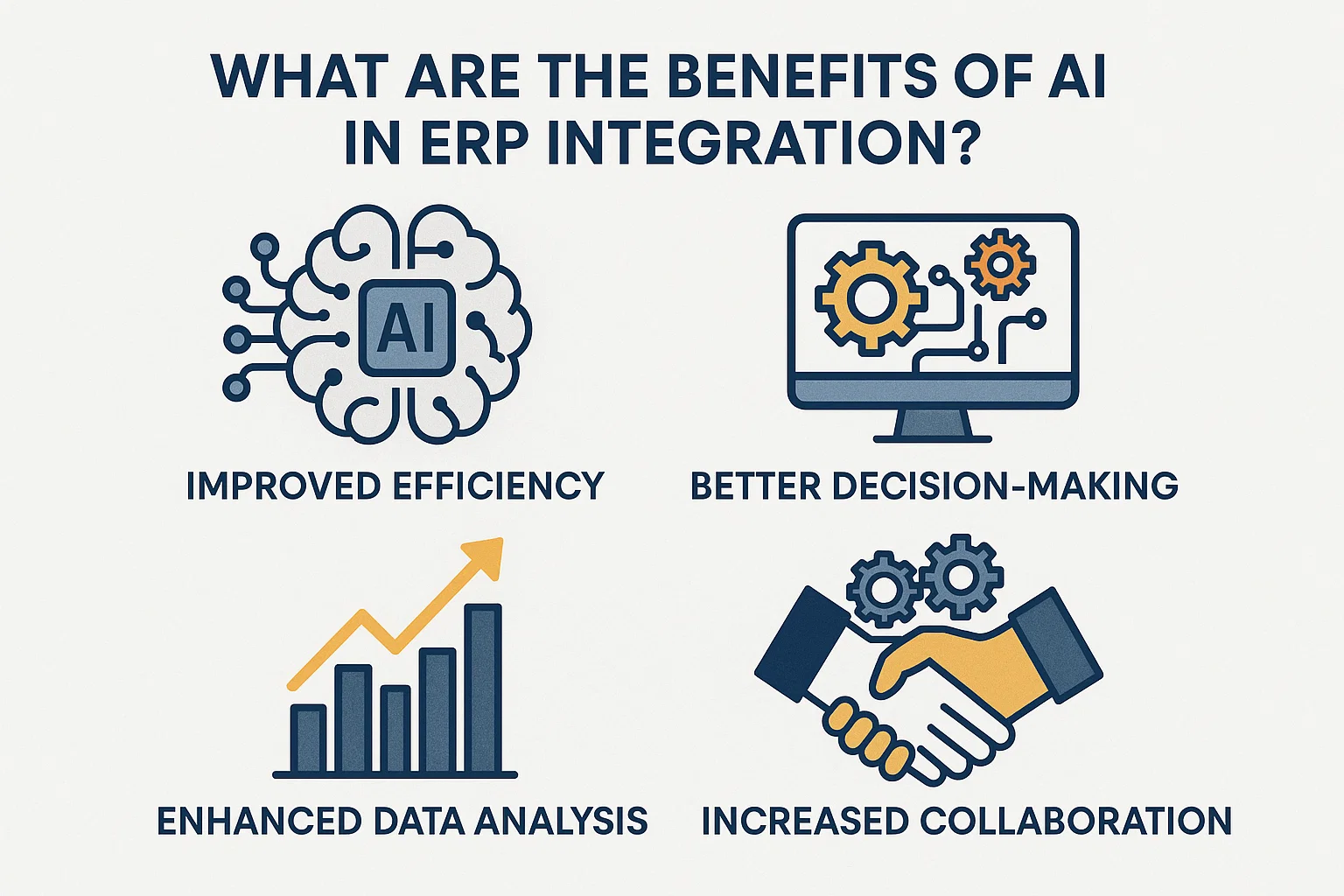Introduction Enterprise Resource Planning (ERP) systems are the backbone of modern businesses. They integrate finance, HR, supply chain, procurement, and operations into a centralized platform, giving organizations a single source of truth. However, ERP systems on their own are often limited when it comes to handling unstructured data—like invoices, contracts, medical prescriptions, or scanned documents.

That’s where Artificial Intelligence (AI) steps in. By integrating AI into ERP, businesses unlock new levels of automation, efficiency, and accuracy. From
AI document processing services that streamline paperwork to
AI-based financial report parsing that gives real-time insights, AI helps transform ERP systems into intelligent, proactive business tools. Let’s explore the top benefits of combining AI with ERP systems.
1. Automated Data Entry and Document Processing
One of the biggest challenges in ERP management is manual data entry. Employees spend hours uploading invoices, purchase orders, or compliance documents into the system. This slows down workflows and often leads to costly human errors. With
Intelligent OCR software and
AI document processing services, businesses can automatically capture information from invoices, contracts, or utility bills and feed it directly into the ERP system. For example:
- Bank statement parser tools can upload transactions directly into the finance module.
- Loan application processing AI can extract applicant details and update CRM or financial modules.
- Medical prescription digitization can feed healthcare ERP systems with standardized medication data.
This automation ensures faster workflows and greater data accuracy.
2. Real-Time Financial Insights
Finance teams often struggle with month-end closures because of manual reconciliations and delayed data entry. AI eliminates this challenge by providing real-time visibility. With
AI-based financial report parsing, ERP systems can analyze income statements, balance sheets, and cash flow reports instantly. Instead of waiting weeks for final reconciliations, businesses gain real-time financial insights that improve decision-making. Moreover, AI helps identify anomalies—like irregular transactions or unexpected expenses—before they escalate into bigger problems.
3. Smarter Compliance and Risk Management
Compliance requirements like
KYC verification automation or tax document validation are tedious if handled manually. AI-powered ERP systems automate these compliance checks. For instance:
This reduces regulatory risks while saving time for compliance officers.
4. Accelerated Vendor and Customer Onboarding
ERP systems are central to managing vendors, suppliers, and customers. However, onboarding these stakeholders manually is often slow and error-prone. With
vendor onboarding automation, AI extracts and validates vendor details like tax IDs, certifications, and contracts before integrating them into ERP modules. Similarly, AI can accelerate customer onboarding by processing ID documents through
KYC verification automation and ensuring compliance in real time. This ensures faster collaboration and reduces onboarding bottlenecks.
5. Enhanced Operational Efficiency
AI enables ERP systems to go beyond record-keeping and actively improve efficiency. For instance, AI can analyze data from
energy utility bills to suggest cost-saving measures, or highlight inefficiencies in supply chain management by analyzing procurement data. With AI integrated into ERP, businesses don’t just record operational data—they use it to drive efficiency, reduce waste, and optimize resource allocation.
6. Improved Decision-Making with Predictive Analytics
ERP systems are great for storing historical data, but AI brings predictive capabilities. For example:
- AI can analyze loan application processing AI data to predict approval likelihoods.
- It can forecast demand in procurement by studying vendor and customer data.
- It can anticipate risks in healthcare claims processing AI, helping insurers prevent fraud.
This forward-looking capability transforms ERP from a static system into a strategic tool.
7. Scalability and Cost Savings
Manual ERP processes require more staff as businesses grow. But with AI automation, companies can scale operations without adding proportional headcount. Whether processing thousands of
bank statements, digitizing
medical prescriptions, or parsing hundreds of financial reports, AI ensures ERP systems handle higher workloads seamlessly. This results in significant cost savings and faster growth.
Conclusion
AI integration is revolutionizing ERP systems. By combining ERP’s centralized data management with AI’s automation and intelligence, businesses gain:
- Automated document processing
- Real-time financial insights
- Smarter compliance and onboarding
- Predictive analytics for better decision-making
From
AI document processing services to
Healthcare claims processing AI,
vendor onboarding automation, and
AI for energy utility bills, the benefits are clear. AI doesn’t just make ERP systems more efficient—it makes them smarter and future-ready.
Discover how Makez.ai can simplify your document workflows and accelerate customer onboarding—securely and at scale.  That’s where Artificial Intelligence (AI) steps in. By integrating AI into ERP, businesses unlock new levels of automation, efficiency, and accuracy. From AI document processing services that streamline paperwork to AI-based financial report parsing that gives real-time insights, AI helps transform ERP systems into intelligent, proactive business tools. Let’s explore the top benefits of combining AI with ERP systems.
That’s where Artificial Intelligence (AI) steps in. By integrating AI into ERP, businesses unlock new levels of automation, efficiency, and accuracy. From AI document processing services that streamline paperwork to AI-based financial report parsing that gives real-time insights, AI helps transform ERP systems into intelligent, proactive business tools. Let’s explore the top benefits of combining AI with ERP systems.